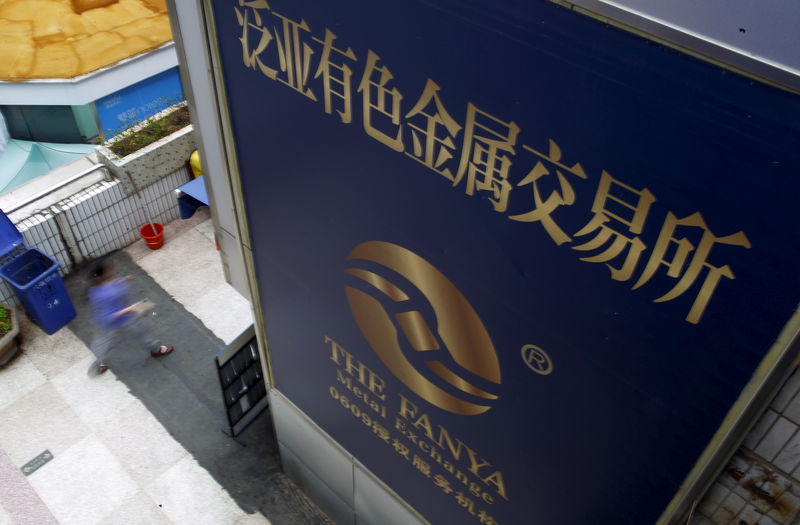BEIJING/SHANGHAI (Reuters) - China's first attempt to sell off inventories of minor metals held by the now-defunct Fanya Metal Exchange fell flat on Tuesday, as an online auction of indium failed to attract any bids.
A court in Kunming, in southwestern China, is selling Fanya's assets in order to pay off creditors owed nearly 40 billion yuan ($5.93 billion) after the exchange's collapse in 2015. This first auction was watched closely by both the investors affected and the minor metals market.
The 24-hour bidding window on e-commerce platform Taobao closed at 10 a.m. (0200 GMT). While there were around 8,300 views of the auction pages, no one entered a bid for either batch of indium ingots on offer -- one totaling 27.04 tonnes and a second batch of 7.6 tonnes, the website showed.
The opening bid for the metal was set at 1,200 yuan ($177.97) per kg.
The Kunming Intermediate People's Court did not immediately respond to a faxed request for comment on the auction.
Combined, the two lots of indium, a silvery metal used in flat-panel screens and semi-conductors, had a market value of more than 50 million yuan, according to the website.
Indium prices in China have fallen by 9.1 percent since early December to 1,445 yuan ($214.26) a kg. Since April 2015, when Fanya first began to face liquidity problems as more investors made withdrawal requests, prices have dropped 37.4 percent.
Because Fanya's indium inventories were believed to total 3,600 tonnes -- equivalent to several years of global production -- it was possible there would be an auction every week and potential bidders were being cautious since they are reluctant to pay too much, said a minor metals trader based in China, who was closely following the auction.
"I think people will just wait," the trader said. "If you were to buy at $200 (per kg) and it's $160 next week, that's a lot of money."
When it collapsed, Fanya also claimed significant stockpiles of other metals, including nearly 20,000 tonnes of bismuth and 18,660 tonnes of antimony.
Investors said they are still calling for the full restitution of all the money they paid into Fanya, which promised to boost the prices of minor metals by building stockpiles purchased through investor funds, regardless of how much is earned through the auctions.
"The final result (of the auction) should not affect the full payment of compensation, including both the principal and interest, to all the victims of the Fanya Exchange," said a Shanghai-based investor who is seeking the return of funds from the defunct exchange.
